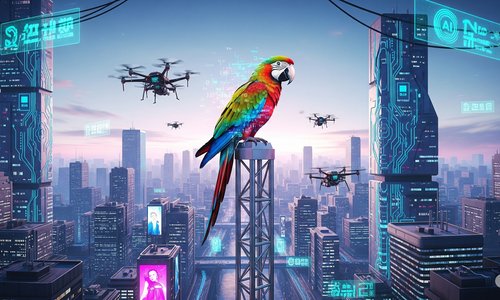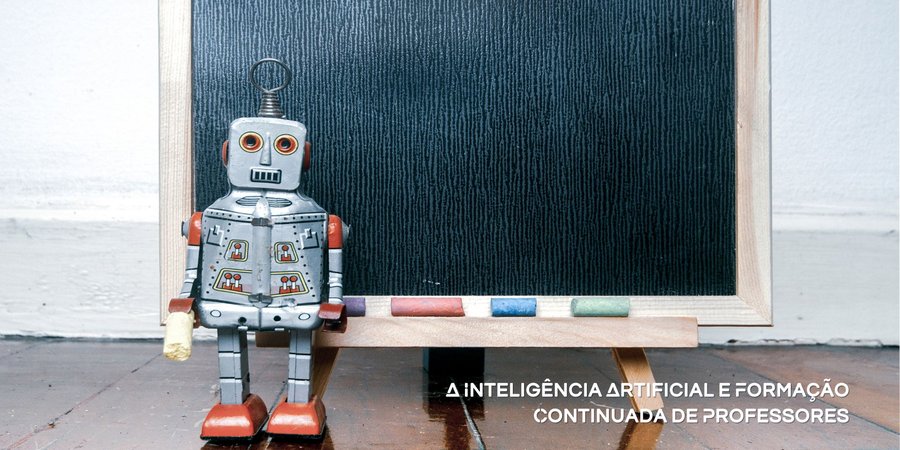
A Promessa e o Perigo da Nova Revolução Digital
A nova corrida tecnológica global levanta uma pergunta urgente: estamos prontos para confiar na inteligência que criamos?

A inteligência artificial atualmente está cada vez mais presente na sociedade contemporânea, com suas aplicações, potencializando cada vez mais soluções que apresentam impactos positivos e também negativos, como qualquer desenvolvimento tecnológico.
Processos e soluções baseadas na utilização da Inteligência Artificial, são constantemente desenvolvidos, otimizando e inovando produtos, serviços em várias áreas do conhecimento e até na educação.
Com um recorte na utilização da Inteligência Artificial com aplicação na Educação, muitos elogios e críticas são apresentadas e fundamentadas em suas razões específicas.
Contanto, devemos focar numa perspectiva que as inovações educacionais baseadas na Inteligência Artificial, podem melhorar os resultados de aprendizagem contribuindo na equidade no acesso e aproveitamento da educação.
Devemos explorar os fundamentos da Inteligência Artificial, proporcionando uma reflexão e discussão das suas potencialidades, utilizações na educação e seus padrões éticos e morais.
Quando se objetiva uma melhoria na qualidade de ensino, não podemos esquecer do protagonismo do professor, pois é ele entre outras competências, se destaca na mediação do processo de aprendizagem e na arquitetura do processo de ensino.
Portanto, para uma busca da melhoria na qualidade do ensino, passa necessariamente por um programa de formação continuada dos professores, perpassando em temas como metodologias inovadoras, novas tecnologias, e outros temas de abordagem contemporânea com bullying no ambiente escola, colaboração e ética.
Com relação ao tema Inteligência Artificial na Educação, não podemos somente restringir à conteúdos programáticos instrumentalistas na formação continuada de professores. Precisamos sistematizar êxito temático que contextualize dois pontos: aprendizado com a Inteligência Artificial e ensino para a Inteligência Artificial.
Assim não repetiremos erros do passado, instrumentalizado o professor e o aluno, na utilização da tecnologia em sala de aula, mas deixando de lado aspectos focados no olhar crítico e reflexivo da tecnologia, em particular a Inteligência Artificial.
Vários benefícios de como utilizar a IA na educação, alguns já são conhecidos, mas precisamos dar atenção também para a utilização da IA na Educação no ambiente educacional.
Os professores apresentam dificuldades quando o tema está relacionado ao para a utilização da IA, principalmente em termos como distorções algorítmicas e suas implicações, IA e direitos humanos, direitos autorias, etc.
A Inteligência Artificial em sala de aula, por si só, fará pouco contribuição no processo de ensino aprendizagem. É necessário estabelecer no programa de capacitação, uma metodologia didática/pedagógica que atenda as expectativas do professor, como foco na relação Como e Para a IA na educação.
Devemos aproveitar o espaço educativo para promover o desenvolvimento de um cidadão criativo, crítico e reflexivo, visando atender as perspectivas de uma sociedade constantemente em conflito e suas necessidades.
Dados do autor:
Sergio Ferreira do Amaral – Professor Titular Colaborador da Faculdade de Educação da UNICAMP, Coordenador do Laboratório de Inovação Tecnológica Aplicada na Educação da Faculdade de Educação da UNICAMP – LANTEC.
Plataforma Lattes do CNPq: http://lattes.cnpq.br/8990935625316222
Professor Titular colaborador da Faculdade de Educação da UNICAMP e coordenador do Laboratório de Inovação Aplicada na Educação da Faculdade de Educação da UNICAMP - LANTEC

A nova corrida tecnológica global levanta uma pergunta urgente: estamos prontos para confiar na inteligência que criamos?

Por que dominar a IA será a nova alfabetização do século XXI

Conselhos de Administração devem evoluir da supervisão reativa para a antecipação estratégica, frente à crescente complexidade e volatilidade dos ambientes de negócios.

De 14 a 25 de julho, reserve suas manhãs das 08h00 às 09h30 para participar da tradicional Maratona I2AI! Uma jornada intensa com debates e palestras sobre temas essenciais: Ética,